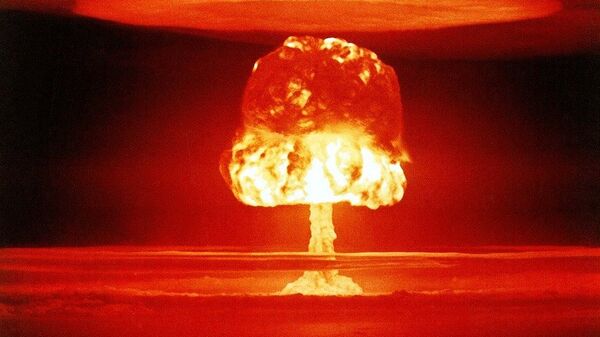A limited nuclear war between the two South Asian neighbours will disrupt the global food supply, says a study conducted by a researcher at the NASA Goddard Institute for Space Studies Jonas Jagermeyr.
Published by Proceedings of the National Academy of Sciences of the United States, the study stated that even a “limited” nuclear war between the regional rivals could have “grave consequences for the rest of the planet”.
Explaining the consequence of a nuclear conflict, the study states that a sudden change in climate due to the setting off of 100 Hiroshima-sized bombs, which are far less powerful than modern thermonuclear warheads, would cause severe crop losses and the regional conflict would impact the interdependent world economy.
“Sudden cooling is actually more harmful to global crop production than the same amount of anthropogenic warming,” Jägermeyr was quoted as saying by science news website EurekaAlert.
Speculation about a limited nuclear war between the two countries has been rising in recent years.
In November 2019, Pakistan's Railways Minister Sheikh Rashid Ahmed warned India of area-specific nuclear attacks with tiny atomic bombs. Rashid claimed that Pakistan possess 125 250-gram nuclear bombs.
Pakistan prime minister Imran Khan had said that rising tensions between the nuclear-armed countries could endanger the world.
Indian defence minister Rajnath Singh said India may change its 'no-first-use policy' in future. He said, “Till today, our nuclear policy is 'No First Use'. What happens in future depends on the circumstances.”
Tensions between the nuclear-armed neighbours India and Pakistan have intensified since New Delhi stripped Jammu and Kashmir of its special constitutional status in 2019.


